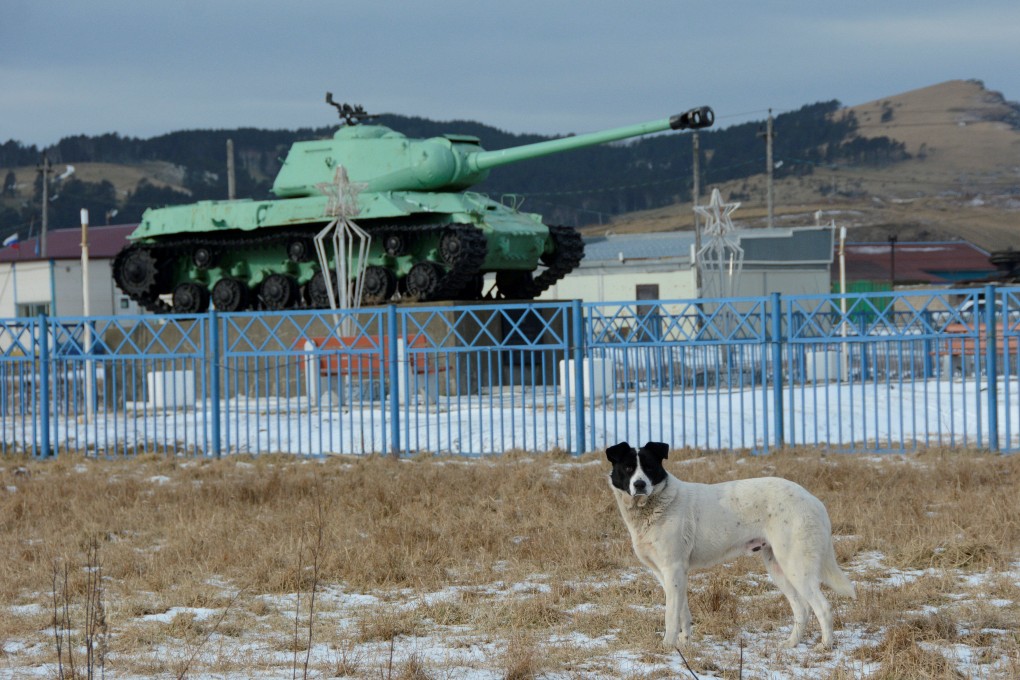Advertisement
Are US troops in Japan to blame for Tokyo, Moscow never signing a treaty to formally end WWII?
- A Kremlin spokesman blamed the presence of US troops in Japan for the lack of a peace treaty between Tokyo and Moscow to formally end World War II
- Moscow’s ‘carrot-and-stick’ tactic over the treaty goes back decades, analysts say, and Tokyo is more focused on its summit with Manila and Washington
Reading Time:3 minutes
Why you can trust SCMP
10

Russia has dredged up a Cold War-era strategy in an effort to drive a wedge between Tokyo and Washington, analysts say, after a Kremlin spokesman blamed the presence of US troops in Japan for the lack of a peace treaty between Moscow and Tokyo to formally conclude World War II.
Dmitry Peskov’s remarks – that the American presence in Japan had been an obstacle to a peace treaty for the last 79 years – could even be interpreted as hinting at Moscow’s willingness to return a group of islands seized by Soviet forces in the closing days of the war, on condition that US troops leave Japan.
They came amid the backdrop of this week’s trilateral talks among Japanese Prime Minister Fumio Kishida, US President Joe Biden and Philippine President Ferdinand Marcos Jnr.

“The de facto defence alliance is already there, and we know about the United States’ military potential that is stationed in Japan – close to our borders,” Peskov said. “This has always been a stumbling block in trying to reach a settlement of our main problem, the peace treaty.”
Tokyo and Moscow have held discussions for years over the islands of Etorofu – Iturup in Russian – Kunashiri (or Kunashir), Shikotan and the Habomai Islets that were occupied just days before Japan’s surrender in 1945. Former Japanese prime minister Shinzo Abe came closest to an agreement in 2016 with Russian President Vladimir Putin on the territory’s joint economic development.
But no consensus was reached, and Putin has taken an increasingly firm line on the issue, passing legislation making it illegal to cede any Russian territory to another country. As a result of the impasse, the two countries have never signed a peace treaty to formally end the second world war.
Russia’s “carrot-and-stick” diplomatic approach to Japan dates back to Andrei Gromyko becoming foreign minister of the Soviet Union in the late 1950s, said Russian-born Yakov Zinberg, a professor of international relations at Tokyo’s Kokushikan University.
Advertisement